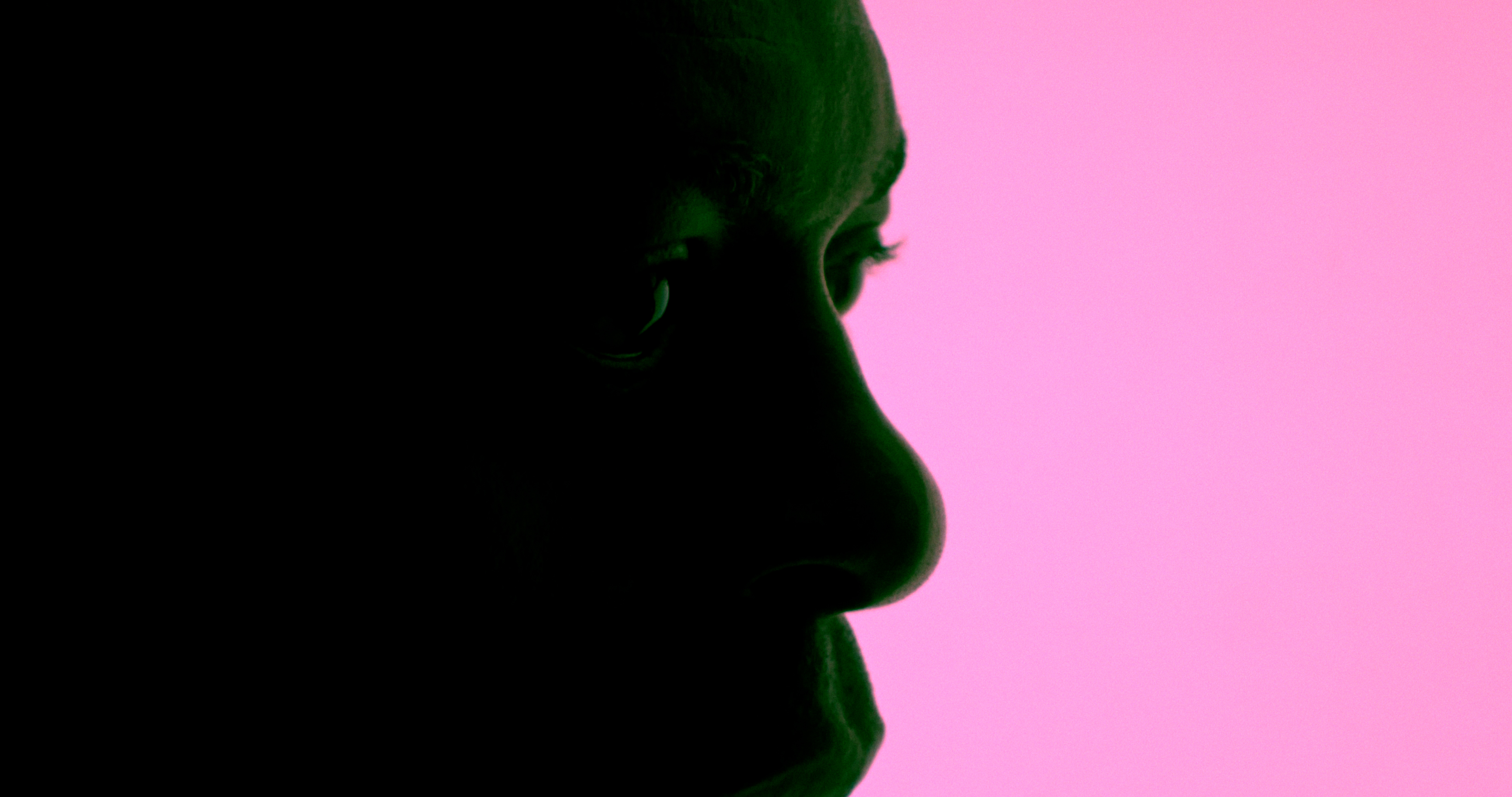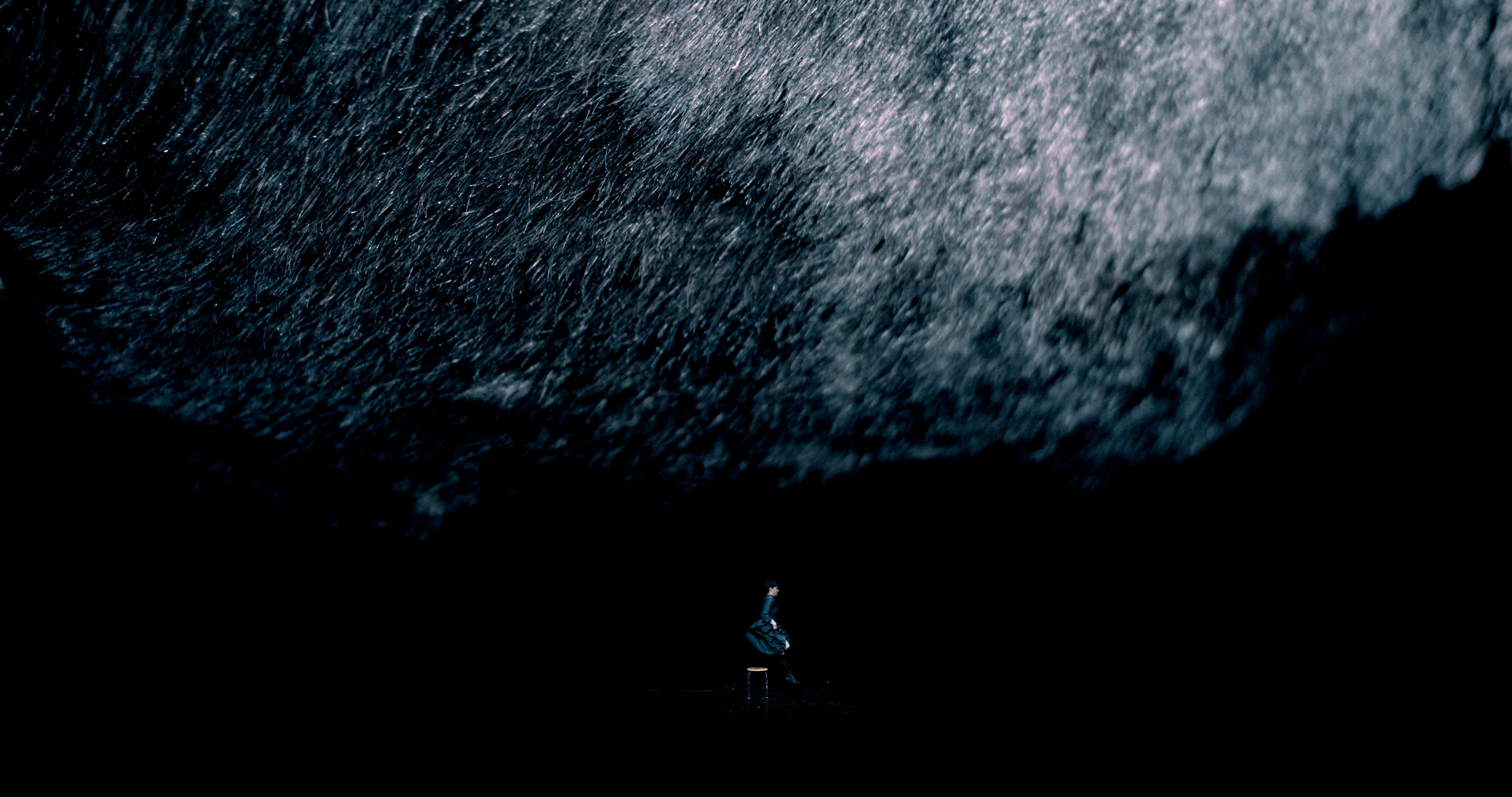OCCIDENT
4K 30 Min. 2021
Film
Director Thomas Taube
DOP Joanna Piechotta
Composition Gregor Pfeffer
Actors Pina Bergemann Christian Erdt Claude Turquin
DOP Joanna Piechotta
Composition Gregor Pfeffer
Actors Pina Bergemann Christian Erdt Claude Turquin
The world as we know it began in California in the last quarter of the 19th century. The development of high-speed film photography became the lens for a larger story about the transformation of time and space. It set the stage for what would later become Hollywood and Silicon Valley, both of which have had the greatest impact on contemporary life, Rebecca Solnit describes in her 2003 published book, "Rivers of Shadow".But the world as we know it was also shaped by European colonialism in the late 15th century. It determines how we view our so-called norm today and the relationship between each other within these normative settings known as world and reality. It is also the origin of why we can live the way we do. It is the basis for the separation between the privileged and the so-called other.
Occident was the name of a horse whose movements became famous and were the subject of an analysis of a vague concept. Occident is also the terminological definition of how the West separates itself from the rest of the world. It is the backbone of what seems to be the normative, and leads to the question of why it is not us who drown in the sea, who make our textiles, who dig for our resources, or who work in zones where toxic substances are mined that seem to have disappeared long ago, but in reality are still around us, just like the people who are in contact with these substances. We live in a reality of the present absence of materials that nonetheless surround us and determine the relationship between the various extensions of a system.Asbestos is one such material that is indeed present. It is in the air and in our buildings, but it is no longer present in our collective consciousness. Asbestos is just a placeholder for other materials and conditions that people have to deal with. Cobalt, chromium or other materials and substances are used by us as a matter of course, as well as the work of the people who labor them for us.
The world as we know it began in California in the last quarter of the 19th century. The development of high-speed film photography became the lens for a larger story about the transformation of time and space. It set the stage for what would later become Hollywood and Silicon Valley, both of which have had the greatest impact on contemporary life, Rebecca Solnit describes in her 2003 published book, "Rivers of Shadow".But the world as we know it was also shaped by European colonialism in the late 15th century. It determines how we view our so-called norm today and the relationship between each other within these normative settings known as world and reality. It is also the origin of why we can live the way we do. It is the basis for the separation between the privileged and the so-called other. Occident was the name of a horse whose movements became famous and were the subject of an analysis of a vague concept. Occident is also the terminological definition of how the West separates itself from the rest of the world. It is the backbone of what seems to be the normative, and leads to the question of why it is not us who drown in the sea, who make our textiles, who dig for our resources, or who work in zones where toxic substances are mined that seem to have disappeared long ago, but in reality are still around us, just like the people who are in contact with these substances. We live in a reality of the present absence of materials that nonetheless surround us and determine the relationship between the various extensions of a system.Asbestos is one such material that is indeed present. It is in the air and in our buildings, but it is no longer present in our collective consciousness. Asbestos is just a placeholder for other materials and conditions that people have to deal with. Cobalt, chromium or other materials and substances are used by us as a matter of course, as well as the work of the people who labor them for us.
Die Welt, wie wir sie kennen, begann in Kalifornien im letzten Viertel des 19. Jahrhunderts. Die Entwicklung der Hochgeschwindigkeits-Filmfotografie wurde zum Objektiv für eine größere Geschichte über die Transformation von Zeit und Raum. Es ist die Basis für das spätere Hollywood und das Silicon Valley, die beide das zeitgenössische Leben am stärksten geprägt haben, beschreibt Rebecca Solnit in ihrem 2003 veröffentlichten Buch "Rivers of Shadow".Die Welt, wie wir sie kennen, wurde aber auch durch den europäischen Kolonialismus Ende des 15. Jahrhunderts geprägt. Er bestimmt unsere heutige Sichtweise auf unsere so genannte Norm und das Verhältnis untereinander innerhalb dieser normativen Gegebenheiten, die als Welt und Wirklichkeit bezeichnet werden. Sie ist auch der Ursprung der Tatsache, warum wir so leben können, wie wir leben. Es ist die Grundlage für die Trennung zwischen den Privilegierten und den sogenannten Anderen. Okzident war der Name eines Pferdes, dessen Bewegungen berühmt wurden und Gegenstand einer Analyse eines vagen Begriffs waren. Occident ist auch die terminologische Definition dafür, wie sich der Westen vom Rest der Welt abgrenzt. Es ist das Rückgrat dessen, was das Normative zu sein scheint, und führt zu der Frage, warum nicht wir es sind, die im Meer ertrinken, die unsere Textilien herstellen, die nach unseren Ressourcen graben oder die in Zonen arbeiten, in denen giftige Stoffe abgebaut werden, die scheinbar längst verschwunden sind, in Wirklichkeit aber immer noch um uns herum sind, genau wie die Menschen, die mit diesen Stoffen in Kontakt sind. Wir leben in einer Realität der präsenten Abwesenheit von Materialien, die uns dennoch umgeben und die das Verhältnis zwischen den verschiedenen Auslegern eines Systems bestimmen.Asbest ist ein solches Material, das in der Tat gegenwärtig ist. Es ist in der Luft und in unseren Gebäuden, aber in unserem kollektiven Bewusstsein ist es nicht mehr vorhanden. Asbest ist nur ein Platzhalter für andere Materialien und Bedingungen, mit denen die Menschen umgehen müssen. Kobalt, Chrom oder andere Stoffe und Substanzen werden wie selbstverständlich von uns verwendet, ebenso die Arbeit der Menschen angesehen, die diese für uns erarbeiten.
OCCIDENT
30:48 Min. / 4K / 2021
Dir.: Thomas Taube
DOP: Joanna Piechotta
w.: Pina Bergemann, Christian Erdt, Claude Turquin Sona Ngoh Ebako, Paul Faure, Mohamed Kaba, Maxime Mutin, Ahmed Toya
Assistant Camera: Nico Mews
Light: Inga Riedel
Composition: Gregor Pfeffer
Costume: Marina Minst
Editing: Thomas Taube
Color Grading: Enrico Wittich / Trickkiste Leipzig
Additional Dialogue Recording: Patrick Becker / Bromologic
Production Manager Munich, Berlin: Helena Kühnemann
Production Manager Toulouse: Sona Ngoh Ebako
Translation English: Moira Feil
Translation French: Mareike Maschke, Richard Siegert
Thanks to: Carla Meller, Residenztheater München, Maria Teichert, Christian Bäucker, Ralf Klaus Becher / CRB GmbH




